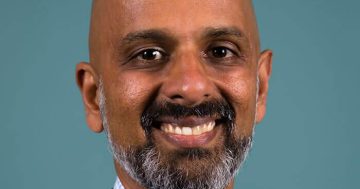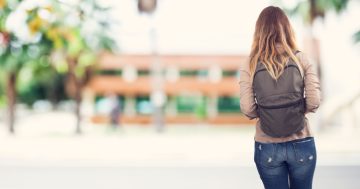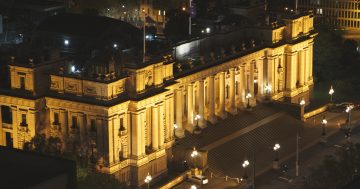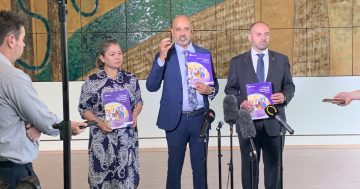
Race Discrimination Commissioner Giridharan Sivaraman says Australia’s racial discrimination act needs upgrading. Photo: Supplied.
Australia’s racial discrimination laws need changing to make them less burdensome for victims, says Race Discrimination Commissioner Giridharan Sivaraman.
Speaking at the National Press Club on Wednesday (6 August), Mr Sivaraman acknowledged the 50-year anniversary of the Racial Discrimination Act 1975 made law by the Whitlam government.
But the commissioner said it was time for reform, to make the law more proactive in preventing racial discrimination abuse and attacks.
He said legislation as it stood today placed the burden of proof on targets of racism, requiring them to be harmed before charges could be pursued against perpetrators.
“This needs to change,” Mr Sivaraman said.
“To truly create safer environments, we need to shift from reactive measures and instead, work to stop racism before it happens.”
The commissioner said the ongoing war in Gaza was resulting in what he described as a “terrifying surge” of racism in Australia.
This had manifested in greater instances of antisemitism, anti-Palestinian racism and Islamophobia across the country.
He called for a national anti-racism taskforce to tackle inequality and rising hate attacks and abuse in Australia.
The idea has the backing of more than 100 key organisations, he said, but no government at any level in Australia seems prepared to run with it.
The commissioner first made that call in November last year when he launched what he said was the most comprehensive plan Australia had ever seen for eliminating racism across the nation.
With 63 recommendations for a whole-of-society approach to the issue, the plan proposes reforms across Australia’s legal, justice, health, education, media and arts sectors.
During his Press Club address on Wednesday, he repeated that call.
He also urged the media to better report injustices and for communities to work together in combatting racism.
“To overcome disadvantage we must do more than acknowledge it,” the commissioner said.
“We must change the structures that sustain it. We must enact meaningful, systemic change for us all to truly thrive.
“Failing to recognise suffering, wherever it occurs, strips people of their humanity, and that dehumanisation is felt deeply by communities here.”
He said communities often worked well together, and wanted to, but that was not always reflected in media reports.
“There has to be protection against racial vilification and hate speech, but there also has to be protection of the independence of institutions, whether it’s universities, media or other institutions,” he said.
“And that protection means that whatever restrictions you make need to be proportionate to the harm that you’re trying to eradicate …
“When it comes to solutions that will tackle racism, if you just work with one community to the exclusion of another, you don’t come up with solutions that will help everyone.
“Other communities feel like they’re not seen, they’re not heard, that their trauma isn’t real.
“That creates distrust in government. It creates distrust between communities.”
The Australian Human Rights Commission is an independent statutory organisation, established by an act of Federal Parliament to protect and promote human rights in Australia and internationally.
It is Australia’s national human rights institution and monitors and scrutinises Australia’s performance in meeting its international human rights commitments.
It investigates discrimination and human rights complaints, advocates to government and others for human rights to be considered in laws and policy making, and promotes awareness of human rights in Australia.
During his speech, Mr Sivaraman stressed that racial justice in Australia would be meaningless without providing justice to Aboriginal and Torres Strait Islander peoples.
“We cannot fix a problem without addressing its root cause,” he said.
“Every manifestation of racism in this country stems from the original violence against First Peoples.
“All of it stemmed from the same harmful ideas that some people are inherently superior and belong here more than others.”
Original Article published by Chris Johnson on Region Canberra.








